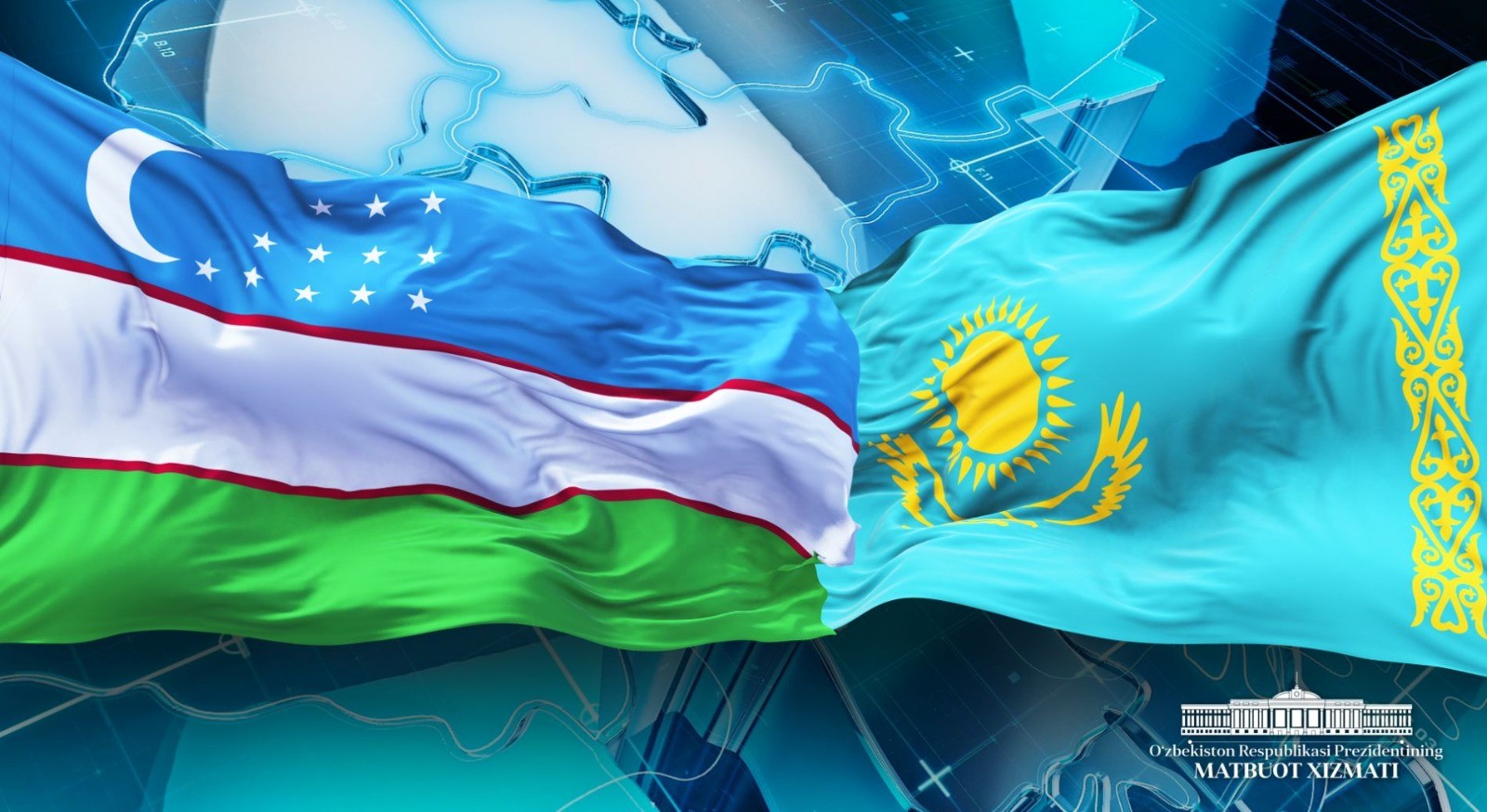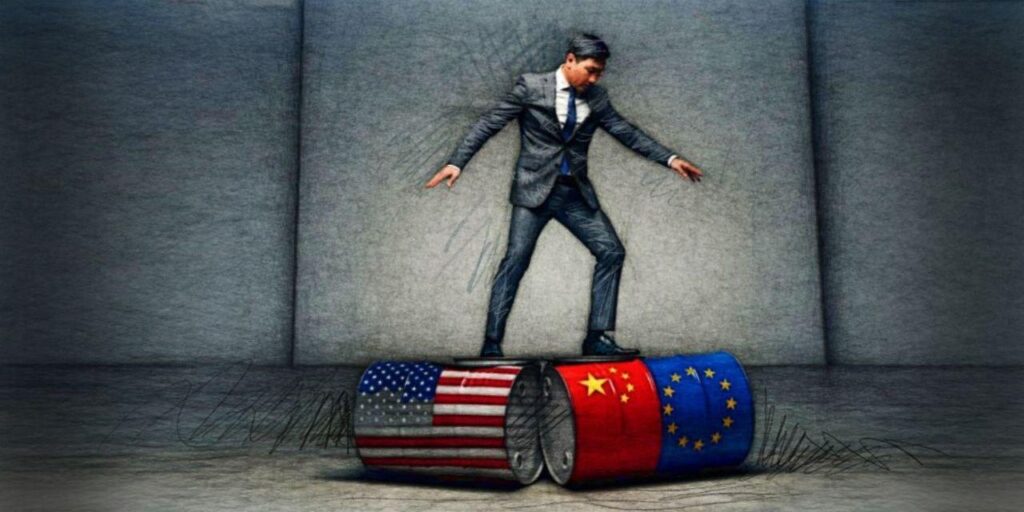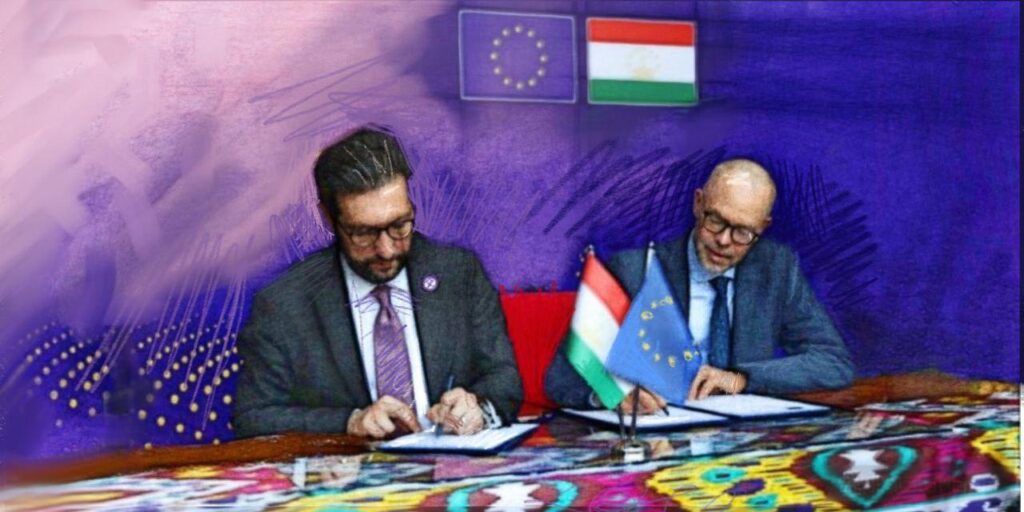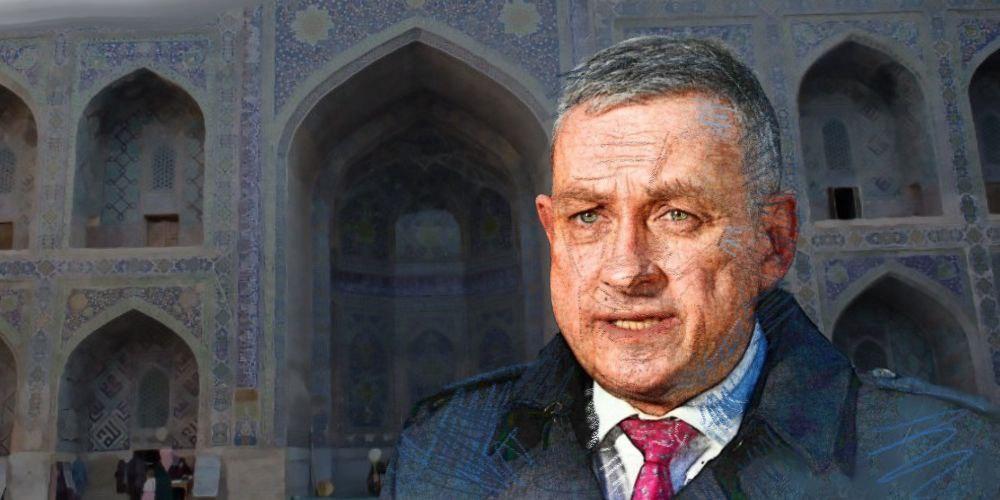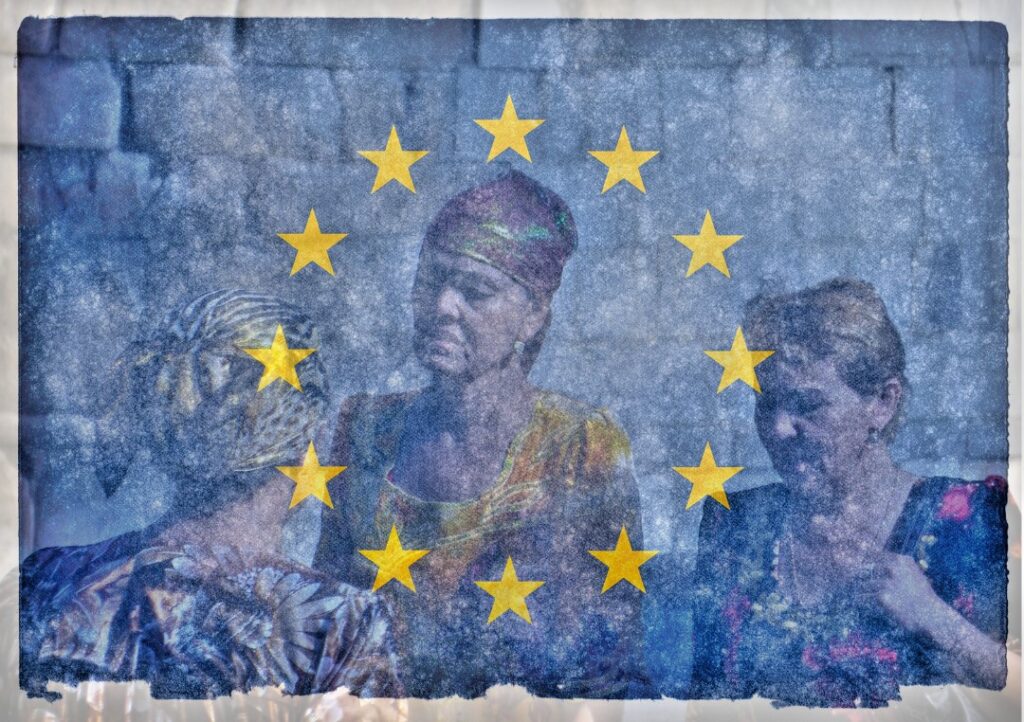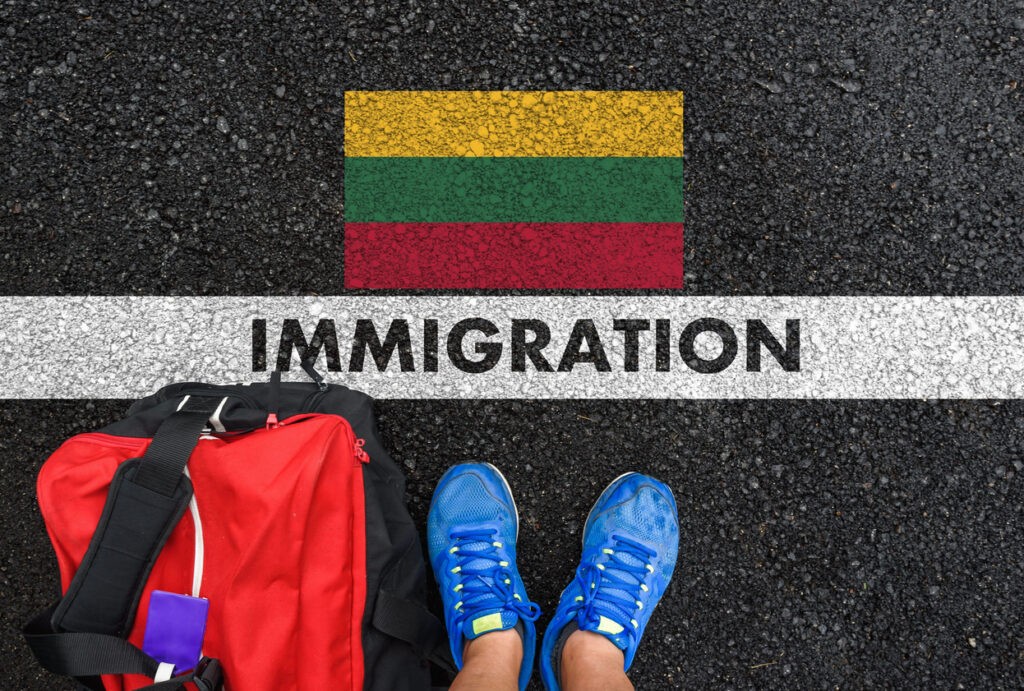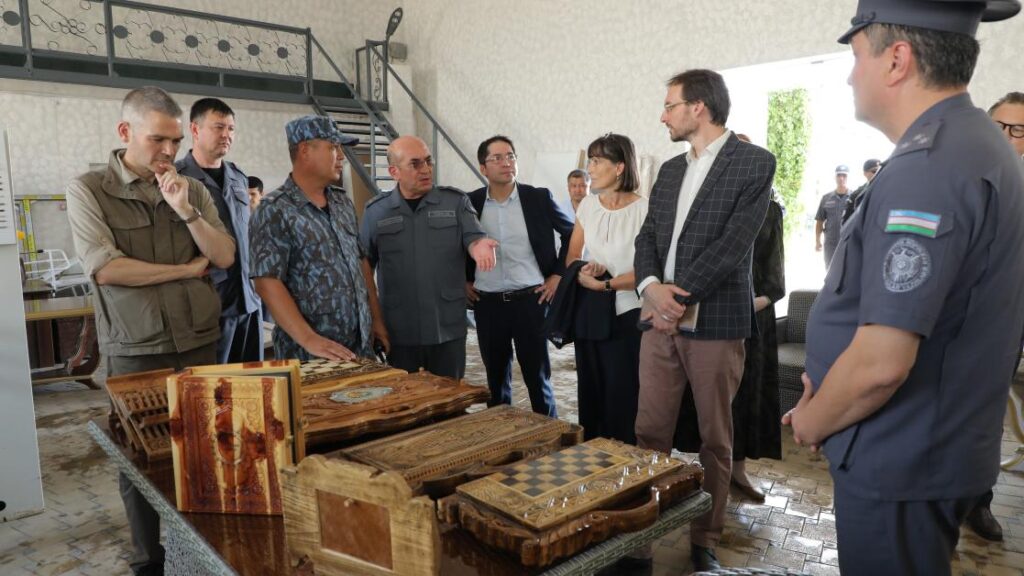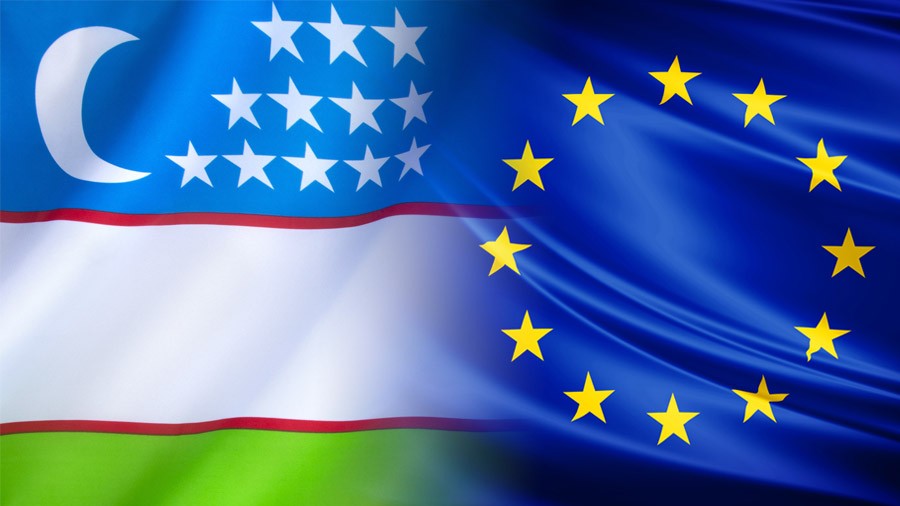Energy, trade, climate change, geopolitical conflict. These are some of the big themes surrounding a trip by German Chancellor Olaf Scholz to Central Asia, whose countries seek to expand their range of international partners while securing their autonomy from outside, sometimes competing influences.
Joined by German business leaders, Scholz was scheduled to arrive in Uzbekistan on Sunday and also visit Kazakhstan prior to a Central Asia-Germany summit there on Tuesday, the last day of his tour. It is Scholz’s first trip to Central Asia, signaling how important the region has become for Europe as it seeks new energy alternatives to reduce dependence on supplies from Russia since Moscow’s full-scale invasion of Western-backed Ukraine in February 2022.
The relationship goes beyond the stopgap purchase of energy and minerals, even though Russian officials has accused Western countries of trying to use Central Asia as a tool in their conflict with Russia. At an inaugural summit last year in Berlin, Germany along with Kazakhstan, Kyrgyzstan, Tajikistan, Turkmenistan and Uzbekistan agreed to a “strategic regional partnership.”
European countries recognize that the Central Asia is deeply bound to Russia and China, the regional powers, and that European and Central Asian goals and priorities won’t always align, according to Western analysts. However, Central Asian countries also recognize that engaging with Europe, the United States and other more distant partners is in their interests because it helps them to maintain strategic autonomy and leverage.
“If the Central Asian states want to gain weight and be heard in the emerging multipolar world order, they must strengthen their technological, industrial and geopolitical independence,” analysts said in a commentary posted by the German Institute for International and Security Affairs, which advises the German government and parliament. “This does not necessarily imply decoupling from Russia and China, but rather spreading risk through the addition (not substitution) of partners.”
The analysts said Germany should bolster Central Asian autonomy by helping to strengthen the region’s “crisis resilience” via support on issues such as transport routes, electricity infrastructure and water management. They also said European efforts to “win the support of regional states for Western sanctions against Russia must be measured against the realities on the ground” – an apparent reference to the trade with Russia that Central Asia considers vital to its economies.
Kazakhstan, which shares a long land border with Russia, has in particular faced a difficult balancing act on sanctions. At a press briefing with Scholz in Berlin in September 2023, Kazakh President Kassym-Jomart Tokayev said his country would comply with Western sanctions against Russia over the Ukraine war while still cooperating with its neighbor. However, Serik Zhumangarin, Kazakhstan’s deputy prime minister and trade minister, told the Bloomberg news agency last month that Kazakhstan won’t always “blindly follow the sanctions” and will be looking out for its own economic interests.
Human rights groups want Scholz to bring up freedoms and the rule of law during his trip to Central Asia. They argue that avoiding the topic will only hinder efforts to bring German investment and projects into the region.
“Serious human rights concerns across the region include suppression of the rights to protest and express opinions, including online, jailing of activists, torture in detention, crackdowns on civil society, violence against women, impunity for abusive security forces, and a lack of free and fair elections,” Hugh Williamson, director of the Europe and Central Asia division of Human Rights Watch, said in a statement.
At last year’s Berlin meeting, Scholz and the Central Asian leaders “reaffirmed their commitment to work together for peace, security, democracy, the rule of law and sustainable development in full respect of international law,” according to their joint statement.
In a regional step forward, Kazakhstan this year approved a law that strengthens protections for women and children against domestic violence. A country of particular concern for free expression advocates is Kyrgyzstan, where some media groups have faced prosecution and closure. At the far end of the spectrum is Turkmenistan, an isolated country where it is especially difficult to get independent information.
Scholz will absorb some of the region’s storied culture, meeting Uzbek President Shavkat Mirziyoyev in the historical city of Samarkand to talk about matters including labor migration, education, health and tourism, according to the Uzbek presidency.
The German chancellor may have a little downtime ahead of his heavy schedule in Central Asia. Asked on Instagram what goes through his mind on long flights, the German chancellor said such trips are a chance to work and talk to colleagues traveling with him.
“But because these are long flights, you also have to rest, sleep, eat something,” Scholz said. “That is a moment when I sometimes think about completely different things that have nothing to do with work.”
